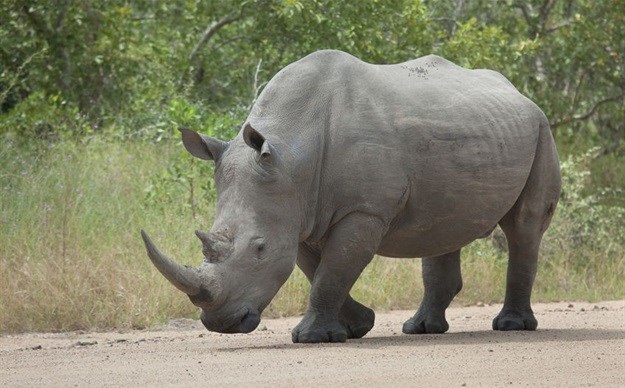
Top stories






More news















Logistics & Transport
Maersk reroutes sailings around Africa amid Red Sea constraints


The proposed law has angered animal rights groups, but proponents of the legislation say flooding the market with horns at a lower cost will lower demand for poached rhinos. Critics say this argument is moot, claiming there is no domestic demand and all poached rhino horns are smuggled into Asia.
Under the law, the government would allow domestic trade of rhino horns and the exporting of two horns at a time. Exporting would be for personal use only and under strict regulations.
The Department of Environmental Affairs says all sales of rhino horns would be carefully documented to include the buyer's and seller's names as well as a permit and the genetic profile of the rhino. The permit would be acquired through CITIES (Convention on International Trade in Endangered Species of Wild Fauna and Flora). Exports of horns would only be permitted through OR Tambo International Airport.
Those in favour of the bill say domestic trade would allow rhino breeders to sell horns from existing stockpiles without injuring live animals. They also argue that there is no proof an international ban on horn trade has done much to protect rhinos. Legal trade, some argue, would actually help fund protection efforts. Some reserves have sold their rhino populations due to high security costs. Legal horn sales may mitigate some of these costs, supporters speculate.
Animal rights groups argue that even limited legalisation could open loopholes that would allow for criminals to export and import rhino horns.
South Africa has an estimated 20,000 rhinos (2,000 black and 18,000 white), or about 80% of Africa's rhino population. Asia is also home to several rhino species, with two being critically endangered. Rhino poaching is a serious problem in South Africa, where more than 1,000 rhinos are killed each year.
Horns are in high demand in Asia, where they are used in traditional medicine, although there is no evidence that the horn has any medicinal value. Demand has driven up cost on the black market where horns can sell for tens of thousands of dollars.
International trade in rhino horns has been banned since 1977. The South African government banned the domestic trade of rhino horns in 2009, but the law has been challenged on and off in court for years. Courts have sided with rhino breeders in some cases. Two independent rhino breeders won a case in 2015. The government has appealed the decision, but the application was dismissed.
Those opposed to legislation say the risks to the rhino population are far too great. Opening up trade and poaching may lead to Africa having no wild rhinos, they say. Conservationists also argue that the government does not have the resources to enforce the law and regulate trade alongside the illegal horn trade industry.